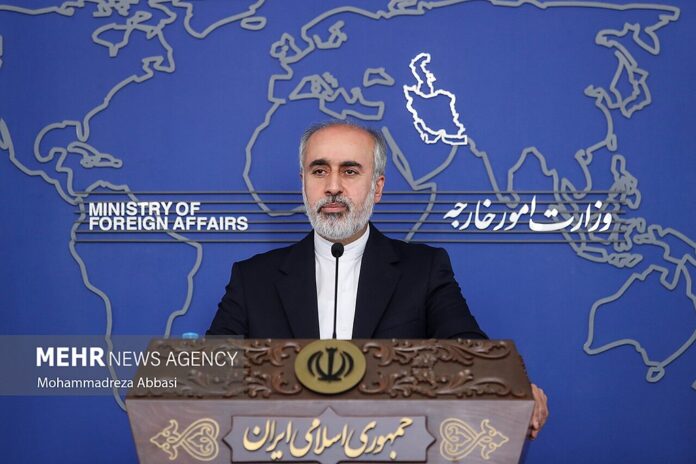Iran’s foreign ministry spokesman Nasser Kanaani calls for Europe to pursue an independent approach in dealings with Tehran following recent political developments
On July 23, 2024, Iran’s Foreign Ministry Spokesman Nasser Kanaani addressed the media, urging Europe to adopt a more independent stance in its foreign policy to improve relations with Tehran. Kanaani’s remarks came during a weekly press conference and were a response to what he described as a “cold” reception from Europe and the US regarding Masoud Pezeshkian’s election as Iran’s ninth President.
Kanaani criticized Europe for what he termed as “miscalculations” about Iran, which he attributed to undue influence from US pressure. He emphasized that Iran views Europe as a crucial player in its foreign relations and suggested that a shift towards a more autonomous European foreign policy could enhance bilateral ties.
In his comments, Kanaani also reacted to recent political changes in the US, particularly President Joe Biden’s decision to withdraw from the presidential race. He downplayed the significance of the US administration change for Iran, focusing instead on the perceived “hostile policy” of the US towards Iran.
Masoud Pezeshkian, who won the presidential runoff against Saeed Jalili on July 6, 2024, is seen as a key figure in shaping Iran’s future policies. The reaction to his election has been part of the broader geopolitical context that Iran is navigating in its international relations.
Analysis:
Political:
Iran’s call for Europe to adopt an independent foreign policy reflects Tehran’s desire to break free from what it perceives as a pattern of Western interference and pressure. The emphasis on Europe’s autonomy suggests a strategic move to realign diplomatic relationships and reduce dependency on or influence from the US. The dynamics of international politics are shifting, with Iran seeking to capitalize on changes in Western policies and political landscapes to its advantage.
Social:
The diplomatic tensions between Iran and Europe, as well as the reaction to the new Iranian president, reflect broader social and political currents within both regions. Iran’s push for a more independent European stance can be seen as an effort to counteract what it views as biased or unfavourable external pressures. This tension also impacts the public perception of international relations and may influence how citizens in both regions view the ongoing diplomatic interactions.
Racial:
The issue at hand does not directly address racial concerns but intersects with broader themes of international diplomacy and geopolitical power dynamics. The interactions between different nations often involve complex cultural and national identities, which can influence diplomatic strategies and relationships.
Gender:
The discussion around Iran’s foreign policy and European relations does not directly involve gender issues. However, the political landscape in both Iran and Europe includes ongoing gender dynamics that influence leadership roles and diplomatic interactions. The election of Masoud Pezeshkian and the broader political climate may indirectly impact gender-related issues through changes in policy and leadership.
Economic:
The call for improved relations and an independent European foreign policy could have significant economic implications. Enhanced diplomatic ties between Iran and Europe might open up new trade opportunities and investment flows, impacting regional and global markets. Conversely, ongoing tensions and diplomatic challenges could hinder economic cooperation and exacerbate existing trade barriers.
